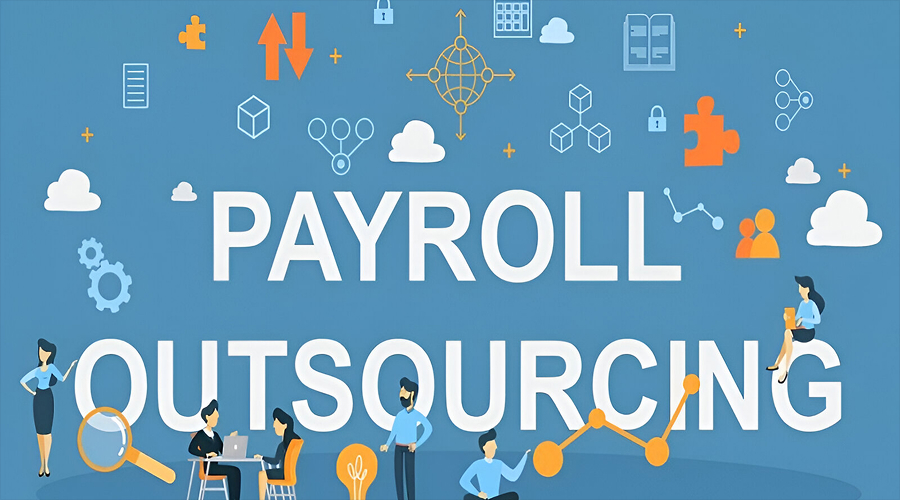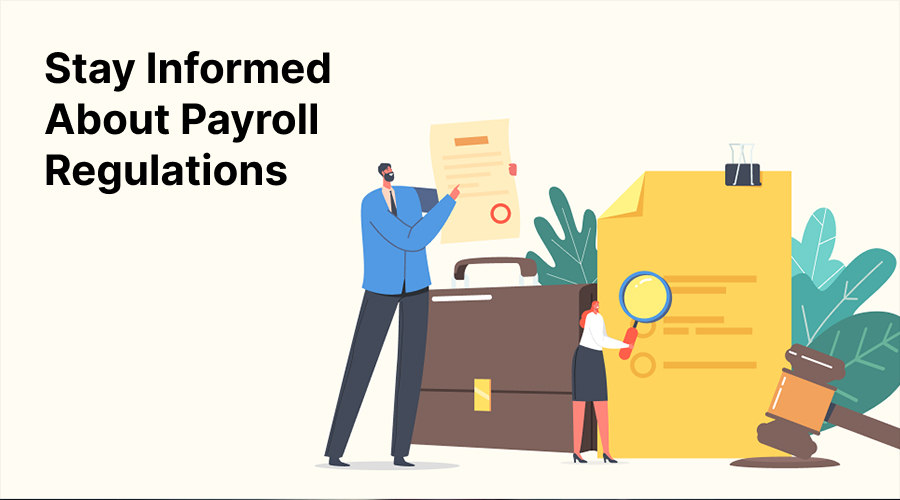
- Adopting payroll software automates calculations, keeps processes consistent, and reduces the chances of human error.
- Consistent payroll schedules set clear expectations for employees and foster trust by ensuring everyone knows when and how they’ll be paid.
- Outsourcing payroll relieves administrative burdens, ensures professional handling of complex regulations, and can boost compliance with less hassle.
- Periodic payroll audits and remaining updated with current laws help small business owners avoid noncompliance and its costly consequences.
Payroll is often one of the most time-consuming and detail-oriented aspects of running a small business. Every payday, business owners must ensure employees are paid the correct amount, deductions are taken accurately, and everyone gets their compensation on time. Keeping up with shifting tax codes and filing deadlines can be incredibly challenging, especially for teams working with minimal administrative support. Maintaining accurate and up-to-date records for hours worked, overtime, bonuses, and benefits adds another layer of complexity to the process. Fortunately, there are many options for small business owners to streamline their payroll process, minimize risks, and free up more energy for growth and innovation. When payroll is handled efficiently, small businesses can avoid costly errors and redirect crucial time into serving their customers and expanding their brand.
Employing practical strategies specifically tailored to the needs of small teams can truly transform payroll from a recurring headache into a seamless, even enjoyable operation. There are numerous tools available—from digital automation platforms to versatile cloud-based solutions—that can save countless hours and help prevent inadvertent mistakes. Implementing the right systems and techniques creates efficiencies that allow business owners to focus on what they do best, rather than getting bogged down in administrative details they may not be experts in. With a combination of ingenuity and modern technology, the payroll burden can become a manageable, stress-free component of business management.
Automate Payroll Processes
Investing in payroll software is a smart move for small businesses that want to increase accuracy and efficiency. Automation takes over repetitive tasks like calculating employee wages, handling deductions and benefits, generating pay stubs, and managing time-off requests. These systems ensure that payroll calculations are performed promptly and in compliance with federal, state, and local tax regulations.
This not only reduces the risk of expensive errors but also boosts overall confidence in payroll accuracy. Integrating payroll software with other essential business platforms, like accounting or HR solutions, can further streamline workflows. When different systems seamlessly share data, there’s less risk of duplicate entries and manual input, both of which are common causes of mistakes. Learn more about the advantages of payroll integration and how it can revolutionize payroll management for small teams, improving accountability and supporting faster decision-making.
Establish a Clear Payroll Schedule
Maintaining a regular payroll schedule—whether it’s weekly, bi-weekly, or monthly—guarantees predictability and dependability for your employees. For business owners, it helps with budgeting and cash flow management, providing better control over financial planning throughout the month.
Establishing a payroll calendar is about more than picking dates. It involves defining each step, automating reminders for payroll deadlines, and allowing enough time for reviews or adjustments, in case hours need correcting or special bonuses are due. This structure eliminates last-minute rushes and reduces the risk of missed or late payments, which can erode trust and morale within your team. Being proactive about payroll timing allows you to plan expenses with more confidence and creates a culture of reliability.
Outsource Payroll Services

For many small businesses, outsourcing payroll is an extremely effective way to save time and reduce risk. Professional payroll providers take over critical components such as tax filings, end-of-year forms (like W-2s or 1099s), compliance with regulations, and handling direct deposits.
These experts possess up-to-date training in payroll law, which can be invaluable for avoiding common pitfalls or penalties that come with tax errors. Outsourcing also relieves business owners from the administrative complexities of payroll processing, freeing them to concentrate on core business activities. This strategy is especially valuable for teams that lack in-house payroll or HR expertise and want to avoid hiring additional staff just to manage payroll. Explore how integrated payroll services simplify business operations and offer peace of mind for small business owners who want to focus on growth.
Also Read: Online Payroll Software for Small Businesses
Regularly Review and Update Tax Documents
Payroll compliance heavily depends upon keeping accurate records and following current tax laws. Since tax requirements often change from year to year, reviewing and updating tax documents should become a regular business habit. This includes properly collecting and filing employee tax forms such as W-4s and I-9s, as well as staying aware of any new deductions or changes in contribution rates for things like Social Security and Medicare.
Conducting internal payroll audits every few months keeps your systems audit-ready, reduces the chance of discrepancies, and builds accountability. Proactively monitoring employee records and making necessary updates also supports better financial planning, ensuring that each pay run aligns perfectly with the latest legal expectations. See why routine payroll audits are a smart safeguard for small teams and how early detection of issues can prevent surprises down the line.
Implement Employee Self-Service Portals
Empowering your team with a self-service payroll portal can significantly streamline administrative tasks while boosting employee satisfaction. With a self-service portal, employees gain the ability to access their pay stubs, retrieve tax forms, and update personal or banking information on their own time.
This not only saves HR and managers valuable hours but also enables staff to independently confirm or correct their payroll data at any time. Employee self-service also supports transparency and fosters a sense of trust, because team members aren’t kept in the dark about their compensation or payment history. Allowing staff direct, round-the-clock access to their financial records reduces back-and-forth communication and gives everyone more control over their work life.
Stay Informed About Payroll Regulations

Payroll laws and regulations at the federal, state, and even local levels are constantly changing and often complex, making it essential to stay well-informed. Keeping current with these updates helps prevent compliance mistakes that can lead to audits, penalties, or legal complications.
Small business owners can subscribe to industry newsletters, attend payroll workshops or webinars, and consult regularly with trusted legal or accounting experts who specialize in payroll matters. In some cases, joining local business or trade organizations can help you stay aware of regional requirements you might otherwise overlook. Establishing a habit of ongoing payroll education safeguards your business and ensures you’re always ready to respond to regulatory changes without stress.
Leverage Cloud-Based Payroll Systems
Cloud-based payroll systems offer small business owners a flexible and secure way to manage payroll tasks in real time. With cloud solutions, you can access payroll information, process payments, and generate reports from anywhere with an internet connection, whether you’re in the office, working remotely, or managing a distributed team.
These systems provide instant access to updated tax rate tables and compliance alerts, so businesses remain aligned with the latest legal standards without manual intervention. Secure and user-friendly, cloud-based platforms are perfect for companies embracing hybrid work, hiring remote employees, or seeking to automate their workflows for scale. Remote accessibility and centralized data storage help business owners react quickly to employee needs or regulatory changes.
Conclusion
For small businesses, simplifying payroll is critical for both operational efficiency and employee satisfaction. By adopting automation, establishing structured payment schedules, wisely outsourcing, auditing regularly, empowering employees with modern tools, staying updated on payroll regulations, and leveraging cloud-based systems, business owners can dramatically improve the payroll experience. These practical strategies reduce time spent on tedious paperwork, lower the risk of costly errors, and make payroll less of a chore. Ultimately, a streamlined payroll process helps small teams spend more time serving customers, chasing new opportunities, and building a thriving, resilient business.






